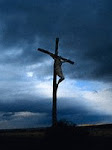
You can always tell when a writer has reached best seller status by looking at the prominent way in which the author’s name is presented on the front cover of a novel. Dick Francis, Robert Crais, or Barbara Delinsky’s name will always appear in large letters that will almost crowd the rest of the graphics off the page. But what about the things we see inside the covers. While fonts, white space and artwork are important, editors tell us there is nothing like a great first line to capture the reader’s attention. Most writers are very conscious of first lines, and often look with envy at the work of someone else who is the master of a carefully crafted phrase. Here is the way Barbara Delinsky starts Facets:
‘Of all the things he’d done to her in the past, of all the things he hadn’t done or either might have or should have, his betrayal now was the cruelest.’
While I am a great Delinsky fan, I hadn’t intended to read that particular book until I read than first line. Who is this idiot, I asked myself, who has caused such mind-numbing pain. You can feel her suffering and rage in the choice of words, and in the complex way in which she expressed it.
Robert Crais immediately captured my attention in Chasing Darkness. The first line reads:
‘Beakman and Trenchard could smell the fire—it was still a mile away, but a sick desert wind carried the promise of hell.’
Dick Francis has created a lot of memorable lines, but I like this one best:
‘I do not like my father’s fifth wife.’
A good first line, a warm cup of coffee, and a glowing fire in the fireplace. What more could anyone ask?
























1 comment:
"One summer afternoon Mrs Oedipa Maas came home from a Tupperware party whose hostess had put perhaps too much kirsch in the fondue to find that she, Oedipa, had been named executor, or she supposed executrix, of the estate of one Pierce Inverarity, a California real estate mogul who had once lost two million dollars in his spare time but still had assets numerous and tangled enough to make the job of sorting it all out more than honorary."
from The Crying of Lot 49, by Thomas Pynchon.
Not bad, eh? Though not to everyone's taste, I'm sure.
Post a Comment